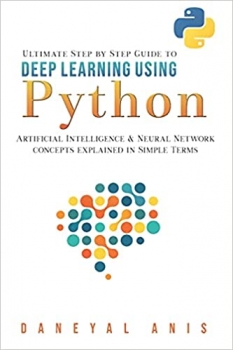Product details
- ASIN : B086CXMYZV
- Publisher : Packt Publishing; 1st edition (April 17, 2020)
- Publication date : April 17, 2020
- Language : English
- File size : 24199 KB
- Print length : 294 pages
کتاب MicroPython Projects: A do-it-yourself guide for embedded developers to build a range of applications using Python 1st Edition
Explore MicroPython through a series of hands-on projects and learn to design and build your own embedded systems using the MicroPython Pyboard, ESP32, the STM32 IoT Discovery kit, and the OpenMV camera module.
Key Features
- Delve into MicroPython Kernel and learn to make modifications that will enhance your embedded applications
- Design and implement drivers to interact with a variety of sensors and devices
- Build low-cost projects such as DIY automation and object detection with machine learning
Book Description
With the increasing complexity of embedded systems seen over the past few years, developers are looking for ways to manage them easily by solving problems without spending a lot of time on finding supported peripherals. MicroPython is an efficient and lean implementation of the Python 3 programming language, which is optimized to run on microcontrollers. MicroPython Projects will guide you in building and managing your embedded systems with ease.
This book is a comprehensive project-based guide that will help you build a wide range of projects and give you the confidence to design complex projects spanning new areas of technology such as electronic applications, automation devices, and IoT applications. While building seven engaging projects, you'll learn how to enable devices to communicate with each other, access and control devices over a TCP/IP socket, and store and retrieve data. The complexity will increase progressively as you work on different projects, covering areas such as driver design, sensor interfacing, and MicroPython kernel customization.
































ارسال نظر درباره کتاب MicroPython Projects: A do-it-yourself guide for embedded developers to build a range of applications using Python 1st Edition